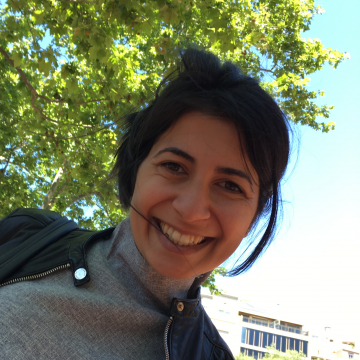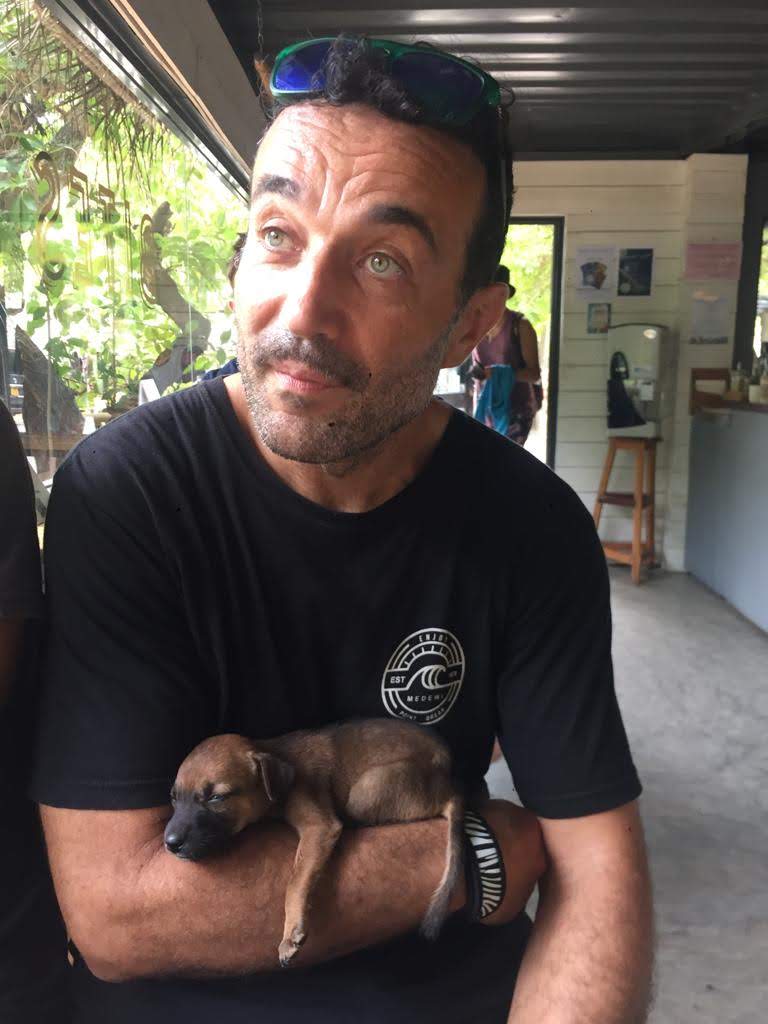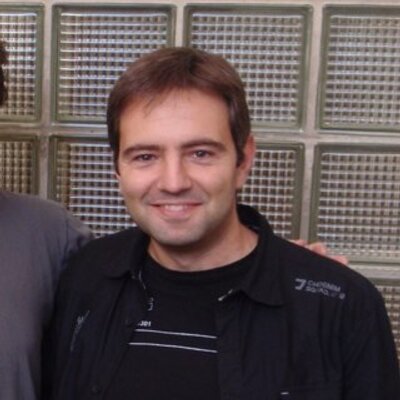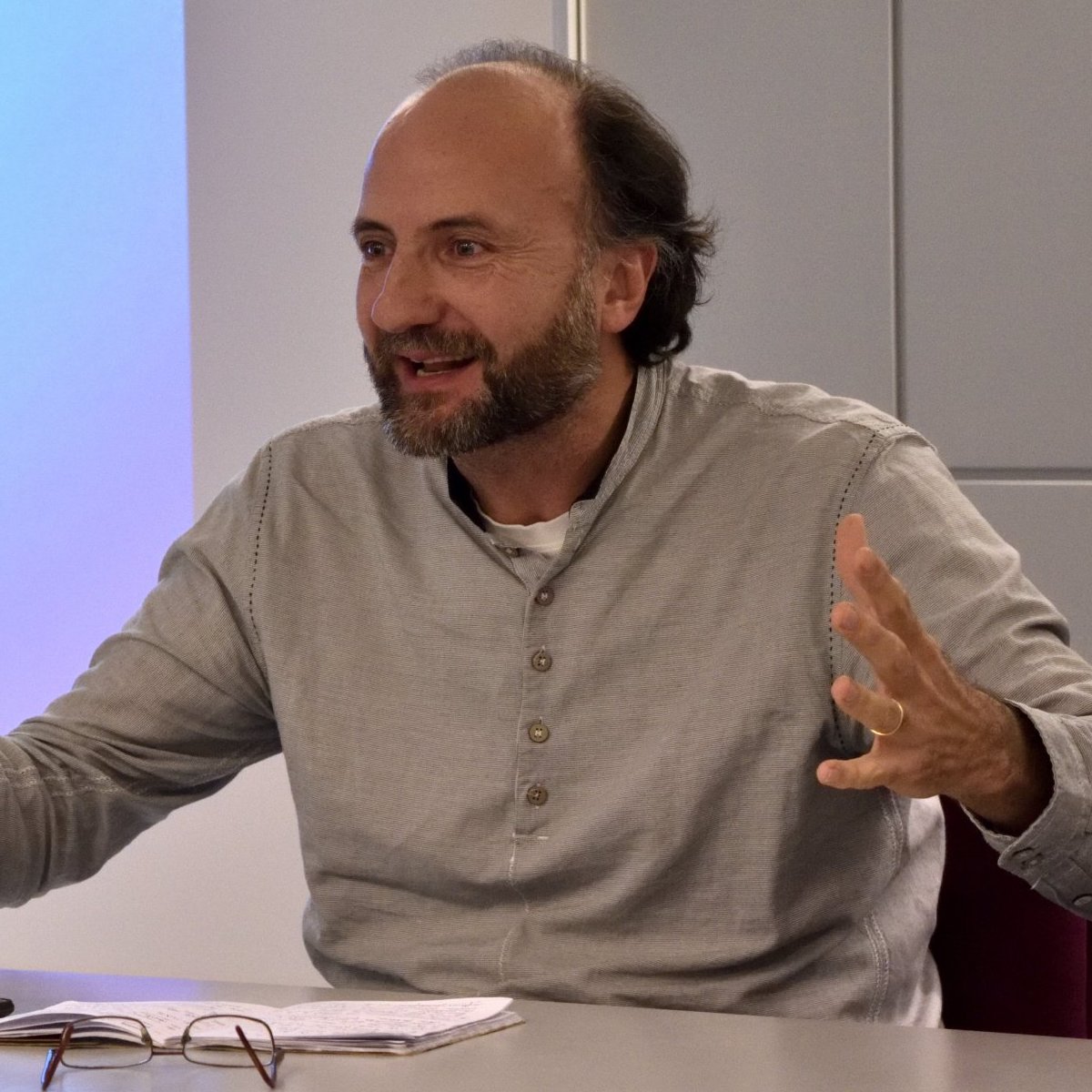AT
: Agreement Technologies
A Project coordinated by IIIA.
Principal investigator:
Collaborating organisations:
This project proposes a new paradigm for next generation distributed systems. The new paradigm will be structured around the concept of agreement between computational agents. These agreements must be consistent with the normative context where they are established and will permit, once accepted, that the agents call for mutual services and honour them.
An entity, by the fact of being autonomous, may choose whether to fulfil an agreement or not, and it should fulfil them when there is an obligation to do so derived from the standing agreements. Autonomy, interaction, mobility and openness are the characteristics that the paradigm will cover from a theoretical and practical perspective. Semantic alignment, negotiation, argumentation, virtual organizations, learning, real time, and several other technologies will be in the sandbox to define, specify and verify such systems. Both functional and non-functional properties will be studied. Security on execution will be based on trust and reputation measures. These measures will help in the decision making of the agents to determine with whom to interact and what terms and conditions to accept. Virtual worlds technology will be explored to give high usability to the tools. Scalability will be guaranteed by the design of new algorithms for semantic alignment and through the use of electronic institutions.
The project will also build algorithms, software platforms and three demonstrators on electronic procurement, mobile health and water conflict resolution.
An entity, by the fact of being autonomous, may choose whether to fulfil an agreement or not, and it should fulfil them when there is an obligation to do so derived from the standing agreements. Autonomy, interaction, mobility and openness are the characteristics that the paradigm will cover from a theoretical and practical perspective. Semantic alignment, negotiation, argumentation, virtual organizations, learning, real time, and several other technologies will be in the sandbox to define, specify and verify such systems. Both functional and non-functional properties will be studied. Security on execution will be based on trust and reputation measures. These measures will help in the decision making of the agents to determine with whom to interact and what terms and conditions to accept. Virtual worlds technology will be explored to give high usability to the tools. Scalability will be guaranteed by the design of new algorithms for semantic alignment and through the use of electronic institutions.
The project will also build algorithms, software platforms and three demonstrators on electronic procurement, mobile health and water conflict resolution.
2024
Nardine Osman,
Bruno Rosell,
Andrew Koster,
Marco Schorlemmer,
Carles Sierra,
& Jordi Sabater-Mir
(2024).
The uHelp Application.
Nardine Osman (Eds.),
Electronic Institutions: Applications to uHelp, WeCurate and PeerLearn (pp 61--79).
Springer.
https://doi.org/10.1007/978-3-319-65605-2_3.
[BibTeX]
2015
Dave de Jonge,
& Carles Sierra
(2015).
GANGSTER: an Automated Negotiator Applying Genetic Algorithms.
Recent Advances in Agent-based Complex Automated Negotiation.
Springer.
[BibTeX]
[PDF]
Francesc Esteva,
Lluís Godo,
Siegfried Gottwald,
& Franco Montagna
(2015).
Introduction (to the book "Petr Hájek on Mathematical Fuzzy Logic").
Franco Montagna (Eds.),
Petr Hájek on Mathematical Fuzzy Logic (pp 3-20).
Springer International Publishing.
http://link.springer.com/chapter/10.1007/978-3-319-06233-4_11.
[BibTeX]
[PDF]
Fèlix Bou,
Francesc Esteva,
& Lluís Godo
(2015).
On possibilistic modal logics defined over MTL-chains.
Franco Montagna (Eds.),
Petr Hájek on Mathematical Fuzzy Logic (pp 225-244).
Springer.
http://link.springer.com/chapter/10.1007/978-3-319-06233-4_11.
[BibTeX]
[PDF]
Marjon Blondeel,
Tommaso Flaminio,
Steven Schockaert,
Lluís Godo,
& Martine Cock
(2015).
On the relationship between fuzzy autoepistemic logic and fuzzy modal logics of belief.
Fuzzy Sets and Systems, 276, 74-99.
http://www.sciencedirect.com/science/article/pii/S0165011415001116.
[BibTeX]
[PDF]
Juan A. Rodríguez-Aguilar,
Carles Sierra,
Josep Lluis Arcos,
Maite López-Sánchez,
& Inmaculada Rodriguez
(2015).
Towards next generation coordination infrastructures.
Knowledge engineering review, 30.
[BibTeX]
[PDF]
Juan A. Rodríguez-Aguilar,
Carles Sierra,
Josep Lluis Arcos,
Maite López-Sánchez,
& Inmaculada Rodriguez
(2015).
Towards next generation coordination infrastructures.
Knowledge Eng. Review, 30, 435-453.
https://doi.org/10.1017/S0269888915000090.
[BibTeX]
Nardine Osman,
Patricia Gutierrez,
& Carles Sierra
(2015).
Trustworthy Advice.
Knowledge-Based Systems, 82, 41-59.
http://www.sciencedirect.com/science/article/pii/S0950705115000787.
[BibTeX]
[PDF]
2014
Pilar Dellunde
(2014).
Applications of ultraproducts: from compactness to fuzzy elementary classes.
Logic Journal of the IGPL, 22.
[BibTeX]
Amanda Vidal,
Francesc Esteva,
& Lluís Godo
(2014).
A product modal logic.
35th Linz Seminar on Fuzzy Set Theory
(pp. 127-130).
[BibTeX]
[PDF]
Atilim Günes Baydin,
Ramon López Mántaras,
& Santiago Ontañón
(2014).
A Semantic Network-based Evolutionary Algorithm for Modeling Memetic Evolution and Creativity.
Evolutionary Intelligence, 8, 3-21.
[BibTeX]
[PDF]
Patricia Gutierrez,
Nardine Osman,
& Carles Sierra
(2014).
Collaborative Assessment.
Lled{\\'{o}}Museros Cabedo, Oriol Pujol, & N{\\'{u}}ria Agell (Eds.),
Artificial Intelligence Research and Development - Proceedings of the 17th International Conference of the Catalan Association for Artificial Intelligence, Barcelona, Catalonia, Spain, October 22-24, 2014
(pp. 136--145).
{IOS}Press.
https://doi.org/10.3233/978-1-61499-452-7-136.
[BibTeX]
[PDF]
Tommaso Flaminio,
Lluís Godo,
& Hykel Hosni
(2014).
On the logical structure of de Finetti's notion of event.
Journal of Applied Logic, 12, 279-301.
http://www.sciencedirect.com/science/article/pii/S1570868314000214.
[BibTeX]
[PDF]
John Debenham,
& Carles Sierra
(2014).
RANA: a Relationship-aware Negotiation Agent.
Fernando Lopes (Eds.),
Negotiation and Argumentation in Multi-agent Systems (pp 233-253).
Bentham Books.
[BibTeX]
[PDF]
Natalia Criado,
Estefania Argente,
& Pablo Noriega
(2014).
Reasoning about constitutive norms in BDI agents.
Logic Journal of the IGPL, 22, 66-93.
[BibTeX]
[PDF]
Natalia Criado,
Estefania Argente,
Pablo Noriega,
& Vicente Botti
(2014).
Reasoning about Norms under Uncertainty in Dynamic Environments.
International Journal of Approximate Reasoning, 5, 2049-2070.
http://dx.doi.org/10.1016/j.ijar.2014.02.004.
[BibTeX]
[PDF]
Nardine Osman,
Patricia Gutierrez,
& Carles Sierra
(2014).
Trustworthy Advice.
21st European Conference on Artificial Intelligence (ECAI-2014)
.
[BibTeX]
[PDF]
2013
Ana Casali,
Lluís Godo,
& Carles Sierra
(2013).
A language for the execution of graded BDI agents.
Logic Journal of the IGPL, 21, 332-354.
[BibTeX]
[PDF]
María Carmen Delgado,
& Carles Sierra
(2013).
A Multi-agent Approach to Energy-Aware Wireless Sensor Networks Organization.
Sascha Ossowski Carlos Iván Chesñevar, & George A. Vouros (Eds.),
Agreement Technologies - Second International Conference, AT
(pp. 32-47).
Springer.
http://link.springer.com/chapter/10.1007\%2F978-3-642-39860-5_4$\#$.
[BibTeX]
[PDF]
Toni Penya Alba,
Boris Mikhaylov,
Marc Pujol-Gonzalez,
Bruno Rosell,
Jesús Cerquides,
Juan A. Rodríguez-Aguilar,
Marc Esteva,
Angela Fabregues,
Jordi Madrenas,
Carles Sierra,
Carlos Carrascosa,
Vicente Julian,
Mario Rodrigo,
& Matteo Vassirani
(2013).
An Environment to Build and Track Agent-Based Business Collaboration.
Sascha Ossowski (Eds.),
Agreement Technologies (Law, Governance and Technology Series) (pp 611-624).
Springer.
[BibTeX]
[PDF]
Javier Morales,
Iosu Mendizabal,
David Sanchez-Pinsach,
Maite López-Sánchez,
& Juan A. Rodríguez-Aguilar
(2013).
Applying IRON to a Virtual Community Scenario.
IOS Press (Eds.),
Artificial Intelligence Research and Development: Proceedings of the 16th International Conference of the Catalan Association for Artificial Intelligence. (pp 316-325).
IOS Press.
[BibTeX]
[PDF]
Andrew Koster,
J. Sabater-Mir,
& Marco Schorlemmer
(2013).
Argumentation and Trust.
Sascha Ossowski (Eds.),
Agreement Technologies (Law, Governance and Technology Series) (pp 441-452).
Springer.
[BibTeX]
Carles Sierra,
& John Debenham
(2013).
Building Relationships with Trust.
Sascha Ossowski (Eds.),
Agreement Technologies (Law, Governance and Technology Series) (pp 485-509).
Springer.
[BibTeX]
[PDF]
Toni Penya Alba,
Juan A. Rodríguez-Aguilar,
Jesús Cerquides,
& Meritxell Vinyals
(2013).
CHAINME: Fast Decentralized Finding of Better Supply Chains.
AAMAS '13: Proceedings of the 12th international conference on autonomous agents and multiagent systems
.
[BibTeX]
[PDF]
Nardine Osman,
Carles Sierra,
& Marco Schorlemmer
(2013).
Charters for Self-Evolving Communities.
Emiliano Lorini (Eds.),
11th European Workshop on Multi-agent Systems (EUMAS 2013)
(pp. 112-123).
CEUR-WS.org.
[BibTeX]
[PDF]
José Luis Fernández,
Giovanna Di Marzo Serugendo,
Sara Montagna,
Mirko Viroli,
& Josep Lluis Arcos
(2013).
Description and composition of bio-inspired design patterns: a complete overview.
Natural Computing, 12, 43-67.
http://link.springer.com/article/10.1007\%2Fs11047-012-9324-y.
[BibTeX]
Tomas Trescak,
Inmaculada Rodriguez,
Maite López-Sánchez,
& Pablo Almajano
(2013).
Execution Infrastructure for Normative Virtual Environments.
Engineering applications of artificial intelligence, 26, 51-62.
http://www.sciencedirect.com/science/article/pii/S0952197612002540.
[BibTeX]
Toni Penya Alba
(2013).
From Supply Chain Formation to Multi-agent Coordination.
AAMAS '13: Proceedings of the 12th international conference on autonomous agents and multiagent systems
.
[BibTeX]
[PDF]
Natalia Criado,
Estefania Argente,
& Pablo Noriega
(2013).
Human-inspired model for norm compliance decision making.
Information Sciences, 245, 218-239.
http://www.sciencedirect.com/science/article/pii/S0020025513003915.
[BibTeX]
[PDF]
Lluís Godo,
& Enrico Marchioni
(2013).
Logics for Non-Cooperative Games with Expectations.
Eleventh European Workshop on Multi-Agent Systems (EUMAS 2013)
(pp. 82-96).
CEUR-WS.org.
http://ceur-ws.org/Vol-1113/paper7.pdf.
[BibTeX]
[PDF]
Nicoletta Fornara,
Henrique Lopes Cardoso,
Pablo Noriega,
Eugénio Oliveira,
Charalampos Tampitsikas,
& Michael I Schumacher
(2013).
Modelling Agent Institutions.
Sascha Ossowski (Eds.),
Agreement Technologies (pp 277-307).
Springer-Verlag GmdH.
[BibTeX]
[PDF]
Antonio Garrido,
Adriana Giret,
Vicente Botti,
& Pablo Noriega
(2013).
mWater, a Case Study for Modeling Virtual Markets.
Sascha Ossowski (Eds.),
Agreement Technologies (pp 565-582).
Springer- Verlag GmbH.
[BibTeX]
[PDF]
Andrew Koster,
Marco Schorlemmer,
& J. Sabater-Mir
(2013).
Opening the black box of trust: reasoning about trust models in a BDI agent.
Journal of Logic and Computation, 23, 25-58.
[BibTeX]
Francisco Cruz,
Jesús Cerquides,
Antonio Espinosa,
Juan Carlos Moure,
& Juan A. Rodríguez-Aguilar
(2013).
Optimizing Performance for Coalition Structure Generation Problems' IDP Algorithm.
The 2013 International Conference on Parallel and Distributed Processing Techniques and Applications
.
[BibTeX]
[PDF]
Jordi Campos,
Maite López-Sánchez,
Maria Salamó,
Pedro Avila,
& Juan A. Rodríguez-Aguilar
(2013).
Robust regulation adaptation in multi-agent systems.
ACM Transactions on Autonomous and Adaptive Systems, 8, 1-27.
[BibTeX]
[PDF]
Amineh Ghobani,
Huib Aldewereld,
Virginia Dignum,
& Pablo Noriega
(2013).
Shared Strategies in Artificial Agent Societies.
Huib Aldewereld, & Jaime S. Sichman (Eds.),
Coordination, Organizations, Institutions, and Norms in Agent Systems VIII (pp 71-86).
Spriger-Verlag.
http://dx.doi.org/10.1007/978-3-642-37756-3_5.
[BibTeX]
[PDF]
Giulia Andrighetto,
Cristiano Castelfranchi,
Eunate Mayor,
John McBreen,
Maite López-Sánchez,
& Simon Parsons
(2013).
(Social) Norm Dynamics.
Normative Multi-Agent Systems (pp 135-170).
Schloss Dagstuhl.
[BibTeX]
Toni Penya Alba,
Meritxell Vinyals,
Jesús Cerquides,
& Juan A. Rodríguez-Aguilar
(2013).
Social Value Propagation for Supply Chain Formation.
OPTMAS 6th International Workshop @AAMAS on Optimization in Agent Systems
.
[BibTeX]
[PDF]
Pere Pardo,
& Mehrnoosh Sadrzadeh
(2013).
Strong Planning in the Logics of Communication and Change (extended version with proofs) - 10th International Workshop, DALT 2012, Valencia, Spain, June 4, 2012, Revised Selected Papers.
M. Baldoni al. (Eds.),
Declarative Agent Languages and Technologies X (pp 37-56).
Springer Berlin Heidelberg.
http://link.springer.com/chapter/10.1007\%2F978-3-642-37890-4_3.
[BibTeX]
[PDF]
Estefania Argente,
Olivier Boissier,
Carlos Carrascosa,
Nicoletta Fornara,
Peter Mcburney,
Pablo Noriega,
Alessandro Ricci,
J. Sabater-Mir,
Michael Ignaz Schumacher,
Charalampios Tampitsikas,
Kuldar Taveter,
Giuseppe Vizzari,
& George A Vouros
(2013).
The role of the environment in agreement technologies.
Artificial Intelligence Review, 39, 21-38.
[BibTeX]
Munindar P. Singh,
Matthew Arrot,
Tina Balke,
Amit K. Chopra,
Rob Christiaanse,
Stephen Cranefield,
Frank Dignum,
Davide Eynard,
Emilia Farcas,
Nicoletta Fornara,
Fabien Gandon,
Guido Governatore,
Hoa Khan Dam,
Joris Hulstijn,
Ingolf Krueger,
Ho-Pun Lam,
Michael Meisinger,
Michael Meisinger,
Pablo Noriega,
Bastin Tony Roy Savarimuthu,
Kartik Tadanki,
Harko Verhagen,
& Serena Villata
(2013).
The uses of norms.
Normative Multi-Agent Systems (pp 191-229).
Dagstuhl Publishing.
http://drops.dagstuhl.de/opus/volltexte/2013/4004.
[BibTeX]
Katina Hazelden,
Matthew Yee-King,
Leila Amgoud,
Mark d'Inverno,
Carles Sierra,
Nardine Osman,
Roberto Confalonieri,
& Dave Jonge
(2013).
WeCurate: Multiuser Museum Interactives for Shared Cultural Experiences.
ACM SIGCHI Conference on Human Factors in Computing Systems 2013
.
[BibTeX]
[PDF]
2012
Angela Fabregues,
& Carles Sierra
(2012).
Abridgement of HANA: a Human-Aware Negotiation Architecture.
European Workshop on Multi-agent Systems (EUMAS 2012)
.
[BibTeX]
[PDF]
Natalia Criado,
Estefania Argente,
Pablo Noriega,
& Vicente Botti
(2012).
A Distributed Architecture for Enforcing Norms in Open MAS.
Francien Dechesne, Hiromitsu Hattori, Adriaan Mors, Jose Such, Danny Weyns, & Frank Dignum (Eds.),
Advanced Agent Technology (pp 457-471).
Springer.
http://www.springerlink.com/content/f45r56u48418r432/.
[BibTeX]
[PDF]
Andrew Koster,
J. Sabater-Mir,
& Marco Schorlemmer
(2012).
A Formal Argumentation Dialogue for Personalised Trust Communication.
15th International Workshop on Trust in Agent Societies (TRUST12)
.
[BibTeX]
Manuel Atencia,
& Marco Schorlemmer
(2012).
An Interaction-Based Approach to Semantic Alignment.
Journal of Web Semantics, 12-13, 131-147.
[BibTeX]
[PDF]
Tomas Trescak,
Marc Esteva,
& Inmaculada Rodriguez
(2012).
A shape grammar interpreter for rectilinear forms.
Computer-Aided Design, 44, 657 - 670.
[BibTeX]
Pere Pardo,
& Mehrnoosh Sadrzadeh
(2012).
Backward Planning in the Logics of Communication and Change.
1st International Conference on Agreement Technologies (AT 2012)
(pp. 231-245).
[BibTeX]
Pere Pardo,
Sergio Pajares,
Eva Onaindía,
Lluís Godo,
& Pilar Dellunde
(2012).
Cooperative Dialogues for Defeasible Argumentation-Based Planning.
Iyad Rahwan Peter McBurney (Eds.),
Argumentation in Multi-Agent Systems - 8th International Workshop, ArgMAS 2011, Taipei (Taiwan), Revised Selected Papers (pp 174-193).
SpringerSpringer Berlin Heidelberg.
http://link.springer.com/chapter/10.1007/978-3-642-33152-7_11.
[BibTeX]
[PDF]
Natalia Criado,
Estefania Argente,
Vicente Botti,
& Pablo Noriega
(2012).
Determining the willingness to comply with norms (Extended Abstrat).
Proceedings of the 11th International Conference on Autonomous Agents and Multiagent Systems (AAMAS 2012)
(pp. 1419-1420).
International Foundation for Autonomous Agents and Multiagent Systems.
[BibTeX]
[PDF]
Wamberto W. Vasconcelos,
Andrés García-Camino,
Dorian Gaertner,
Juan A. Rodríguez-Aguilar,
& Pablo Noriega
(2012).
Distributed norm management for multi-agent systems.
Expert Systems with Applications, 39, 5990-5999.
[BibTeX]
[PDF]
Andrew Koster,
Marco Schorlemmer,
& J. Sabater-Mir
(2012).
Engineering trust alignment: Theory, method and experimentation.
International Journal of Human-Computer Studies, 70, 450-473.
http://www.sciencedirect.com/science/article/pii/S1071581912000353.
[BibTeX]
Estefania Argente,
Olivier Boissier,
Carlos Carrascosa,
Nicoletta Fornara,
Peter Mcburney,
Pablo Noriega,
Alessandro Ricci,
J. Sabater-Mir,
Michael Ignaz Schumacher,
Charalampios Tampitsikas,
Kuldar Taveter,
Giuseppe Vizzari,
& George A Vouros
(2012).
Environment and Agreement Technologies.
Proceedings of the First International Conference on Agreement Technologies
(pp. 260-261).
[BibTeX]
[PDF]
Atilim Günes Baydin,
& Ramon López Mántaras
(2012).
Evolution of Ideas: A Novel Memetic Algorithm Based on Semantic Network.
IEEE Congress on Evolutionary Computation
(pp. 1-8).
IEEE.
[BibTeX]
[PDF]
María Carmen Delgado,
Marc Pujol-Gonzalez,
& Carles Sierra
(2012).
Multiagent Co-ordination of Wireless Sensor Networks.
First International Workshop on Citizen Sensor Networks
(pp. 19-32).
Spriger-Verlag.
[BibTeX]
[PDF]
Carles Sierra
(2012).
Negotiation and Search.
Francesca Toni Sascha Ossowski, & George A. Vouros (Eds.),
Proceedings of the First International Conference on Agreement Technologies (pp 1).
CEUR-WS.org.
[BibTeX]
[PDF]
Giulia Andrighetto,
Guido Governatore,
Pablo Noriega,
& Leon Torre
(2012).
Normative Multi-Agent Systems (Dagstuhl Seminar 12111).
Dagstuhl Reports, 2, 23-49.
http://drops.dagstuhl.de/opus/volltexte/2012/3535.
[BibTeX]
[PDF]
Angela Fabregues,
& Carles Sierra
(2012).
Overview of HANA: a Human-Aware Negotiation Architecture.
Proceedings of the First International Conference on Agreement Technologies
(pp. 195-196).
[BibTeX]
[PDF]
Toni Penya Alba,
Meritxell Vinyals,
Jesús Cerquides,
& Juan A. Rodríguez-Aguilar
(2012).
RB-LBP: Scaling Up Decentralized supply chain formation.
5th International Workshop on Optimization in Multi-Agent Systems @AAMAS (OPTMAS)
.
[BibTeX]
Isaac Pinyol,
J. Sabater-Mir,
Pilar Dellunde,
& Mario Paolucci
(2012).
Reputation-Based Decisions for Logic-Based Cognitive Agents.
Journal of Autonomous Agents and Multi-Agent Systems, 24, 175-216.
[BibTeX]
Carles Sierra,
& John Debenham
(2012).
Robust Trust: Prior Knowledge, Time and Context.
Christian Huemer, & Pasquale Lops (Eds.),
International Conference on Electronic Commerce and Web Technologies, EC-Web 2012
(pp. 1-12).
Springer.
[BibTeX]
[PDF]
Toni Penya Alba,
Meritxell Vinyals,
Jesús Cerquides,
& Juan A. Rodríguez-Aguilar
(2012).
Scalable decentralized supply chain formation through binarized belief propagation.
International Joint Conference on Autonomous Agents and Multi-agent Systems
.
http://www.ifaamas.org/Proceedings/aamas2012/papers/Z2_13.pdf.
[BibTeX]
[PDF]
Jose M. Such,
Agustín Espinosa,
garcía-fornes,
& Carles Sierra
(2012).
Self-disclosure Decision Making based on Intimacy and Privacy.
Information Sciences, 211, 93-111.
http://dx.doi.org/10.1016/j.ins.2012.05.003.
[BibTeX]
[PDF]
Amineh Ghobani,
Huib Aldewereld,
Virginia Dignum,
& Pablo Noriega
(2012).
The Dutch eat at 5: 30 pm: shared strategies for agent reasoning.
Proceedings of the 11th International Conference on Autonomous Agents and Multiagent Systems (AAMAS 2012)
(pp. 1421-1422).
International Foundation for Autonomous Agents and Multiagent Systems.
[BibTeX]
Vicente Botti,
Antonio Garrido,
Adriana Giret,
& Pablo Noriega
(2012).
The Role of MAS as a Decision Support Tool in a Water-Rights Market.
Francien Dechesne, Hiromitsu Hattori, Adriaan Mors, Jose Such, Danny Weyns, & Frank Dignum (Eds.),
Advanced Agent Technology (pp 35-49).
Springer.
http://dx.doi.org/10.1007/978-3-642-27216-5_4.
[BibTeX]
[PDF]
Eva Armengol,
Pilar Dellunde,
& Angel García-Cerdaña
(2012).
Towards a Fuzzy Extension of the López de Mántaras Distance.
IPMU 2012
(pp. 81-90).
[BibTeX]
[PDF]
Katina Hazelden,
Matthew Yee-King,
Leila Amgoud,
Mark d'Inverno,
Carles Sierra,
Nardine Osman,
Roberto Confalonieri,
& Dave Jonge
(2012).
WeCurate: Designing for synchronised browsing and social negotiation.
The first International Conference on Agreement Technologies
.
[BibTeX]
[PDF]
2011
Ana Casali,
Lluís Godo,
& Carles Sierra
(2011).
A graded BDI agent model to represent and reason about preferences.
Artificial Intelligence, 175, 1468-1478.
[BibTeX]
[PDF]
Carles Sierra,
Vicente Botti,
& Sascha Ossowski
(2011).
Agreement Computing.
Künstliche Intelligenz, 25, 57-61.
[BibTeX]
[PDF]
Adriana Giret,
Antonio Garrido,
Juan A. Gimeno,
Vicente Botti,
& Pablo Noriega
(2011).
A MAS Decision Support Tool for Water-Right Markets
(pp. 1305-1306).
International Foundation for Autonomous Agents and Multiagent Systems.
[BibTeX]
[PDF]
J. Argerlich,
Chu Min Li,
Felip Manyà,
& Jordi Planes
(2011).
Analyzing the Instances of the MaxSAT Evaluation.
14th International Conference on Theory and Applications of Satisfiability Testing, SAT 2011
(pp. 360-361).
Springer.
[BibTeX]
Cesar Fernandez,
Hector Geffner,
& Felip Manyà
(2011).
Artificial Intelligence Research and Development
.
[BibTeX]
Meritxell Vinyals,
Juan A. Rodríguez-Aguilar,
& Jesús Cerquides
(2011).
A Survey on sensor Networks from a Multiagent Perspective.
The Computer Journal, 54, 455-470.
[BibTeX]
[PDF]
Simon Parsons,
Mark Klein,
& Juan A. Rodríguez-Aguilar
(2011).
Auctions and bidding: a guide for computer scientists.
ACM Computing Surveys, 43.
[BibTeX]
[PDF]
Gustavo Aranda,
Tomas Trescak,
& Marc Esteva
(2011).
Building Quests for Online Games with Virtual Institutions.
Agents for games and simulations II, 192-206.
[BibTeX]
María Carmen Delgado,
& Carles Sierra
(2011).
Coalition-Oriented Sensing in Wireless Sensor Networks.
The 14th International Conference on Principles and Practice of Multi-Agent Systems (PRIMA-2011)
(pp. 448-459).
Springer.
[BibTeX]
[PDF]
Angela Fabregues,
& Carles Sierra
(2011).
DipGame: a challenging negotiation testbed.
Journal of Engineering Applications of Artificial Intelligence, 24, 1137--1146.
http://www.dipgame.org.
[BibTeX]
[PDF]
J. Argerlich,
Chu Min Li,
Felip Manyà,
& Jordi Planes
(2011).
Experimenting with the Instances of the MaxSAT Evaluation.
14th International Conference of the Catalan Association for Artificial Intelligence
(pp. 31-40).
IOS Press.
[BibTeX]
Marc Pujol,
Jesús Cerquides,
Pedro Meseguer,
& Juan A. Rodríguez-Aguilar
(2011).
Improving function filtering for computationally demanding DCOPs.
Workshop on Distributed Constraint Reasoning at IJCAI 2011
(pp. 99-111).
[BibTeX]
[PDF]
José Luis Fernández,
Giovanna Di Marzo Serugendo,
& Josep Lluis Arcos
(2011).
Infrastructureless Spatial Storage Algorithms.
ACM Transactions on Autonomous and Adaptive Systems, 6, 15:1-15:26.
http://doi.acm.org/10.1145/1968513.1968518.
[BibTeX]
Marco Cerami,
& Pere Pardo
(2011).
Many-valued Semantics for Vague Counterfactuals.
Petr Cintula, Chris Fermüller, Lluis Godo, & Petr Hájek (Eds.),
Understanding Vagueness - Logical, Philosophical, and Linguistic Perspectives (pp 341-362).
College Publications.
[BibTeX]
Chu Min Li,
Zhu Zhu,
Felip Manyà,
& Laurent Simon
(2011).
Minimum Satisfiability and Its Applications.
22nd International Joint Conference on Artificial Intelligence, IJCAI 2011
(pp. 605-610).
[BibTeX]
Dave Jonge,
& Carles Sierra
(2011).
Negotiation Based Branch and Bound and the Negotiating Salesmen Problem.
Felip Manyà C. Fernandéz (Eds.),
Proceedings of the 14th International Conference of the Catalan Association for Artificial Intelligence (CCIA 2011)
(pp. p.91-100).
IOS Press.
[BibTeX]
[PDF]
Natalia Criado,
Estefania Argente,
Antonio Garrido,
Juan A. Gimeno,
Francesc Igual,
Vicente Botti,
& Pablo Noriega
(2011).
Norm enforceability in Electronic Institutions?.
Marina Vos, Nicoletta Fornara, Jeremy V. Pitt, & George Vouros (Eds.),
Coordination, Organization, Institutions and Norms in agent systems VI (pp 250-257).
Springer.
[BibTeX]
[PDF]
Meritxell Vinyals,
Eric Shieh,
Jesús Cerquides,
Juan A. Rodríguez-Aguilar,
Zhengyu Yin,
Milind Tambe,
& Emma Bowring
(2011).
Quality guarantees for region optimal DCOP algorithms.
Tenth International Conference on Autonomous Agents and Multiagent Systems (AAMAS 2011)
(pp. 133-140).
IFAAMAS.
[BibTeX]
[PDF]
Natalia Criado,
Estefania Argente,
Vicente Botti,
& Pablo Noriega
(2011).
Reasoning about norm compliance (extended abstract)
(pp. 1191-1192).
International Foundation for Autonomous Agents and Multiagent Systems.
[BibTeX]
[PDF]
Meritxell Vinyals,
Eric Shieh,
Jesús Cerquides,
Juan A. Rodríguez-Aguilar,
Zhengyu Yin,
Milind Tambe,
& Emma Bowring
(2011).
Reward-based region optimal quality guarantees.
Fourth International Workshop on Optimisation in Multi-Agent Systems at AAMAS 2011
.
[BibTeX]
[PDF]
Manuel Atencia
(2011).
Semantic Alignment in the Context of Agent Interaction
(pp. 176).
CSIC.
[BibTeX]
Boris Mikhaylov,
Jesús Cerquides,
& Juan A. Rodríguez-Aguilar
(2011).
Sequential mixed auctions.
The 13th IEEE International Conference on Electronic Commerce
.
[BibTeX]
[PDF]
Marc Esteva,
Juan A. Rodríguez-Aguilar,
Josep Lluis Arcos,
& Carles Sierra
(2011).
Socially-aware lightweight coordination infrastructures.
AAMAS'11 12th International Workshop on Agent-Oriented Software Engineering
(pp. 117-128).
[BibTeX]
[PDF]
Andrew Koster,
J. Sabater-Mir,
& Marco Schorlemmer
(2011).
Talking about Trust in Heterogeneous Multi-Agent Systems.
IJCAI 2011
(pp. 2820-2821).
AAAI Press.
[BibTeX]
[PDF]
Vicente Botti,
Antonio Garrido,
Adriana Giret,
& Pablo Noriega
(2011).
The Role of MAS as a Decision Support Tool in a Water-Rights Market.
(pp. 2-17).
[BibTeX]
Andrew Koster,
J. Sabater-Mir,
& Marco Schorlemmer
(2011).
Trust Alignment: a Sine Qua Non of Open Multi-Agent Systems.
Robert Meersman, Tharam Dillon, & Pilar Herrero (Eds.),
On the Move to Meaningful Internet Systems: OTM 2011.
(pp. 182-199).
Springer.
[BibTeX]
[PDF]
Marc Pujol,
Jesús Cerquides,
Pedro Meseguer,
& Juan A. Rodríguez-Aguilar
(2011).
Two-sided Function Filtering.
11th Workshop on Preferences and Soft Constraints
(pp. 104-112).
[BibTeX]
[PDF]
2010
Jordi Campos,
Maite López-Sánchez,
& Marc Esteva
(2010).
A Case-Based Reasoning approach for Norm adaptation.
A.M Savio E. Corchado (Eds.),
5th International Conference on Hybrid Artificial Intelligence Systems (HAIS'10)
(pp. 168-176).
Springer.
[BibTeX]
[PDF]
Angela Fabregues,
& Carles Sierra
(2010).
An agent architecture for simultaneous bilateral negotiations.
Workshop on Agent-based Complex Automated Negotiations, ACAN-2010
.
http://www.dipgame.org.
[BibTeX]
[PDF]
Angela Fabregues,
& Carles Sierra
(2010).
An Agent Architecture for Simultaneous Bilateral Negotiations.
8th European Workshop on Multi-Agent Systems
.
[BibTeX]
[PDF]
Angela Fabregues,
& Carles Sierra
(2010).
An Agent Architecture for Simultaneous Bilateral Negotiations.
Proceedings of the 13è Congrés Internacional de l'Associació Catalana d'Intel·ligència Artificial (CCIA 2010)
(pp. 29-38).
[BibTeX]
[PDF]
John Debenham,
& Carles Sierra
(2010).
An Agent Model of Business Relationships.
International Conference on Database and Expert Systems Applications DEXA 2010
(pp. 126-140).
Springer Berlin Heidelberg.
[BibTeX]
Vicente Botti,
Antonio Garrido,
Juan A. Gimeno,
Adriana Giret,
Francesc Igual,
& Pablo Noriega
(2010).
An Electronic Institution for Simulating Water-Right Markets.
III Workshop on Agreement Technologies at IBERAMIA 2010 (WAT 2010)
(pp. 3-18).
[BibTeX]
[PDF]
Santiago Ontañón,
& Enric Plaza
(2010).
Argumentation-based Multiagent Induction.
ECAI 2010: 19th European Conference on Artificial Intelligence
(pp. 1111-1112).
[BibTeX]
[PDF]
Adrián Perreau Pinninck Bas,
Marco Schorlemmer,
Carles Sierra,
& Stephen Cranefield
(2010).
A Social-Network Defence against Whitewashing.
9th International Conference on Autonomous Agents and Multiagent Systems (AAMAS 2010)
(pp. 1563-1564).
[BibTeX]
[PDF]
Anton Bogdanovych,
Juan A. Rodríguez-Aguilar,
Simeon Simoff,
& A. Cohen
(2010).
Authentic Interactive Re-enactment of Cultural Heritage with 3D Virtual Worlds and Artificial Intelligence.
Applied Artificial Intelligence, 24, 617-647.
[BibTeX]
Gustavo Aranda,
Tomas Trescak,
Marc Esteva,
& Carlos Carrascosa
(2010).
Building Quests for Online Games with Virtual Institutions.
Workshop on Agents for Games and Simulations at AAMAS 2010
(pp. 125-139).
[BibTeX]
[PDF]
Norman Salazar-Ramirez,
Juan A. Rodríguez-Aguilar,
& Josep Lluis Arcos
(2010).
Collective Sensor Configuration in Uncharted Environments.
19th European Conference on Artificial Intelligence (ECAI 2010)
(pp. 1029-1030).
IOS Press.
[BibTeX]
[PDF]
Marco Cerami,
Francesc Esteva,
& Fèlix Bou
(2010).
Decidability of a Description Logic over infinite-valued Product Logic.
Ulrike Sattler Fangzhen Lin, & Miroslaw Truszczynski (Eds.),
12th Conference on Principles of Knowledge Representation and Reasoning, KR 2010
(pp. 203-213).
AAAI Press.
[BibTeX]
[PDF]
Marco Cerami,
Francesc Esteva,
& Fèlix Bou
(2010).
Decidability of a Description Logic over infinite-valued Product Logic(extended abstract).
L.N.Stout P.Cintul (Eds.),
3st LINZ seminar: Lattice-valued Logic and its Applications
(pp. 21-25).
[BibTeX]
Angela Fabregues,
David Navarro,
Alejandro Serrano,
& Carles Sierra
(2010).
DipGame: a Testbed for Multiagent Systems (Demonstration).
Hoek, Kaminka, Lespe?rance, Luck, & Sen (Eds.),
Proc. of 9th Int. Conf. on Autonomous Agents and Multiagent Systems (AAMAS 2010)
(pp. 1619-1620).
van der Hoek and Kaminka and Lesperance and Luck and Sen.
http://www.dipgame.org/media/AAMAS2010demo.
[BibTeX]
[PDF]
Hector Ceballos,
Pablo Noriega,
& Francisco Cantú
(2010).
Dispatching Agents in Electronic Institutions.
ITMAS 2010: International Workshop on Ifrastructures and Tools for Multiagent Systems
(pp. 26-33).
International Foundation for Autonomous Agents and Multiagent Systems.
[BibTeX]
[PDF]
Meritxell Vinyals,
Juan A. Rodríguez-Aguilar,
& Jesús Cerquides
(2010).
Divide-and-Coordinate by Egalitarian Utilities: turning DCOPs into egalitarian worlds.
3rd International Workshop on Optimization in Multi-Agent Systems @AAMAS (OPTMAS 2010)
.
[BibTeX]
[PDF]
Meritxell Vinyals,
Marc Pujol,
Juan A. Rodríguez-Aguilar,
& Jesús Cerquides
(2010).
Divide and Coordinate: solving DCOPs by agreement.
Proc. of the 9th International Joint Conference on Autonomous Agents and Multi-Agent Systems (AAMAS'10)
(pp. 149-156).
IFAAMAS.
[BibTeX]
[PDF]
Santiago Ontañón,
& Enric Plaza
(2010).
Empirical Argumentation: Integrating Induction and Argumentation in MAS.
AAMAS 2010 Workshop on Argumentation in Multiagent Systems (ArgMAS 2010)
(pp. 163 - 180).
[BibTeX]
Pablo Almajano,
Jesús Cerquides,
& Juan A. Rodríguez-Aguilar
(2010).
Empirical hardness for mixed auctions.
R. M. Gasca P. Meseguer (Eds.),
Lecture notes in computer science (pp 161-170).
Springer.
[BibTeX]
[PDF]
Andrew Koster,
J. Sabater-Mir,
& Marco Schorlemmer
(2010).
Engineering Trust Alignment: a First Approach.
13th Workshop on Trust in Agents Societies at AAMAS 2010
.
[BibTeX]
[PDF]
Chu Min Li,
Felip Manyà,
Zhe Quan,
& Zhu Zhu
(2010).
Exact MinSAT Solving.
International Conference on Theory and Applications of Satisfiability Testing (SAT)
(pp. 363-368).
Springer.
[BibTeX]
Marco Cerami,
& Francesc Esteva
(2010).
First-order SMTL Logic and quasi-witnessed models.
XV Congreso Español sobre Tecnologías y Lógica Fuzzy ESTYLF 2010
(pp. 145-150).
[BibTeX]
[PDF]
Tomas Trescak,
Marc Esteva,
& Inmaculada Rodriguez
(2010).
Generating 3D Virtual Environments Using The Virtual World Builder Toolkit.
CGI 2010
.
[BibTeX]
[PDF]
Santiago Ontañón,
& Enric Plaza
(2010).
Multiagent Inductive Learning: an Argumentation-based Approach.
ICML 2010: 27th International Conference on Machine Learning
(pp. 839 - 846).
[BibTeX]
[PDF]
J. Argerlich,
Alba Cabiscol,
Ines Lynce,
& Felip Manyà
(2010).
New Insights into Encodings from MaxCSP into Partial MaxSAT.
40th IEEE International Symposium on Multiple-Valued Logic (ISMVL)
(pp. 46-52).
IEEE Computer Society.
[BibTeX]
Natalia Criado,
Estefania Argente,
Antonio Garrido,
Juan A. Gimeno,
Francesc Igual,
Vicente Botti,
Pablo Noriega,
& Adriana Giret
(2010).
Norm enforceability in Electronic Institutions?.
Nicoletta Fornara, & George Vouros (Eds.),
11th International Workshop on Coordination, Organization, Institutions and Norms in Multi-Agent Systems (COIN@MALLOW2010)
(pp. 49-64).
[BibTeX]
[PDF]
Daniel Villatoro,
Sandip Sen,
& J. Sabater-Mir
(2010).
Of Social Norms and Sanctioning: A Game Theoretical Overview.
International Journal of Agent Technologies and Systems (IJATS), 2, 15.
[BibTeX]
[PDF]
Hector G. Ceballos,
Pablo Noriega,
& Francisco Cantú
(2010).
Requesting agent participation in electronic institutions (Extended Abstract).
Proceedings of the 9th International Conference on Autonomous Agents and Multiagent Systems: volume 1
(pp. 1375-1376).
International Foundation for Autonomous Agents and Multiagent Systems.
http://portal.acm.org/citation.cfm?id=1838206.1838389.
[BibTeX]
[PDF]
Chu Min Li,
Felip Manyà,
Nouredine Ould Mohamedou,
& Jordi Planes
(2010).
Resolution-Based Lower Bounds in MaxSAT.
Constraints, 15, 29.
[BibTeX]
Norman Salazar-Ramirez,
Juan A. Rodríguez-Aguilar,
& Josep Lluis Arcos
(2010).
Self-Configuring Sensors for Uncharted Environments.
IEEE International Conference on Self-Adaptive and Self-Organizing Systems SASO'10
(pp. 134-143).
[BibTeX]
[PDF]
Natalia Criado,
Estefania Argente,
Pablo Noriega,
& Vicente Boti
(2010).
Towards a Normative BDI Architecture for Norm Compliance..
Nicoletta Fornara, & George Vouros (Eds.),
11th International Workshop on Coordination, Organization, Institutions and Norms in Multi-Agent Systems (COIN@MALLOW2010)
(pp. 65-81).
[BibTeX]
[PDF]
Tomas Trescak,
Marc Esteva,
& Inmaculada Rodriguez
(2010).
Virtual World Grammar.
9th International Conference on Autonomous Agents and Multiagent Systems (AAMAS 2010)
(pp. 1581-1582).
IFAAMAS.
[BibTeX]
[PDF]
Andrew Koster
(2010).
Why does trust need aligning?.
13th Workshop on Trust in Agents Societies at AAMAS 2010
(pp. 125-136).
[BibTeX]
[PDF]
2009
Guido Boella,
& Pablo Noriega
(2009).
09121 Abstracts Collection - Normative Multi-Agent Systems.
Guido Boella, Pablo Noriega, Gabriella Pigozzi, & Harko Verhagen (Eds.),
Normative Multi-Agent Systems
(pp. 1-17).
Schloss Dagstuhl - Leibniz-Zentrum fuer Informatik, Germany.
http://drops.dagstuhl.de/opus/volltexte/2009/1922.
[BibTeX]
[PDF]
Pere Pardo
(2009).
Aggregation of Trust for Iterated Belief Revision in Probabilistic Logics.
Lluís Godo, & A. Pugliese (Eds.),
Third International Conference on Scalable Uncertainty Management, SUM 2009
(pp. 165-179).
Sringer-Verlag.
[BibTeX]
Armando Robles,
Pablo Noriega,
& Francisco Cantú
(2009).
An Agent Oriented Hotel Information System.
Keith S. Decker, Jaime Simão Sichman, Carles Sierra, & Cristiano Castelfranchi (Eds.),
Proceedings of 8th Int. Conf. on Autonomous Agents and Multiagent Systems (AAMAS 20009)
(pp. 1415-1416).
International Foundation for Autonomous Agents and Multiagent Systems.
[BibTeX]
[PDF]
John Debenham,
& Carles Sierra
(2009).
An agent supports constructivist and ecological rationality.
Ricardo Baeza-Yates, Jér\\^{\\^o}me Lang, Sushmita Mitra, & Simon (Eds.),
2009 IEEE/WIC/ACM International Conference on Intelligent Agent Technology
(pp. 255-258).
IEEE Computer Society.
[BibTeX]
[PDF]
Stefan Konig,
Isaac Pinyol,
Daniel Villatoro,
J. Sabater-Mir,
& Torsten Eymann
(2009).
An Architecture for Simulating Internet-of-Services Economies.
Lars Braubach, Wiebe Hoek, Paolo Petta, & Alexander Pokahr (Eds.),
Multiagent System Technologies, 7th German Conference, MATES 2009 (pp 258-267).
Springer.
[BibTeX]
Pilar Dellunde,
& Enriqueta Aragonès
(2009).
An Automated Model of Government Formation.
Fundación BBVA (Eds.),
The Political Economy of Democracy (pp 279-303).
[BibTeX]
Norman Salazar-Ramirez,
Juan A. Rodríguez-Aguilar,
& Josep Lluis Arcos
(2009).
An Infection-Based Mechanism in Large Convention Spaces.
Eighth Workshop on Coordination, Organizations, Institutions, and Norms in Agent Systems COIN'09
(pp. 83-97).
[BibTeX]
[PDF]
Andrew Koster,
& Marco Schorlemmer
(2009).
An Interaction-oriented Model of Trust Alignment.
Seventh European Workshop on Multi-Agent Systems (EUMAS09)
.
[BibTeX]
[PDF]
Santiago Ontañón,
& Enric Plaza
(2009).
Argumentation-Based Information Exchange in Prediction Markets.
Iyad Rahwan, & Pavlos Moraitis (Eds.),
Lecture Notes in Artificial Intelligence (pp 181-196).
Spriger-Verlag.
[BibTeX]
[PDF]
Angela Fabregues,
& Carles Sierra
(2009).
A Testbed for Multiagent Systems
(pp. 18).
IIIA-CSIC.
[BibTeX]
[PDF]
Hector G. Ceballos,
Pablo Noriega,
& Francisco Cantú
(2009).
Autonomic Information Auditing through Electronic Institutions (IIIA-TR-2009-07)
.
IIIA - CSIC.
[BibTeX]
[PDF]
Pere Pardo,
Pilar Dellunde,
& Lluís Godo
(2009).
Base Belief Change for Finitary Monotonic Logics.
13th Conference of the Spanish Association for Artificial Intelligence, CAEPIA 2009
(pp. 337-346).
[BibTeX]
[PDF]
Angela Fabregues,
& Carles Sierra
(2009).
Diplomacy game: the test bed.
http://www.perada-magazine.eu/view.php?source=1761-2009-08-03.
[BibTeX]
[PDF]
Daniel Villatoro,
& J. Sabater-Mir
(2009).
Dynamics in the Normative Group Recognition Process..
Proceedings of IEEE Congress on Evolutionary Computation (IEEE CEC 2009)
(pp. 757-764).
[BibTeX]
[PDF]
Daniel Villatoro,
Nick Malone,
& Sandip Sen
(2009).
Effects of interaction history and network topology on rate of convention emergence..
3rd International Workshop on Emergent Intelligence on Networked Agents (WEIN'09)
(pp. 13-19).
[BibTeX]
[PDF]
Pablo Almajano,
Jesús Cerquides,
& Juan A. Rodríguez-Aguilar
(2009).
Empirical hardness for mixed multi-unit combinatorial auctions.
Conferencia de la Asociación Española para la Inteligencia Artificial (CAEPIA'2009)
(pp. 93-102).
Asociación Española para la Inteligencia Artificial.
[BibTeX]
[PDF]
Chu Min Li,
Felip Manyà,
Nouredine Ould Mohamedou,
& Jordi Planes
(2009).
Exploiting Cycle Structures in Max-SAT.
12th International Conference on Theory and Applications of Satisfiability Testing (SAT 2009)
(pp. 467-480).
Springer.
[BibTeX]
Ana Casali,
Lluís Godo,
& Carles Sierra
(2009).
g-BDI: A Graded Intensional Agent Model for Practical Reasoning.
Modeling Decisions for Artificial Intelligence, 6th International Conference, MDAI 2009
(pp. 5-20).
Springer.
[BibTeX]
[PDF]
Tomas Trescak,
Marc Esteva,
& Inma Rodriguez
(2009).
General Shape Grammar Interpreter for Intelligent Designs Generations.
Bob Werner (Eds.),
Computer Graphics, Imaging and Visualization, CGIV'09
(pp. 235-240).
IEEE Computer Society.
[BibTeX]
[PDF]
Norman Salazar-Ramirez,
Juan A. Rodríguez-Aguilar,
& Josep Lluis Arcos
(2009).
Handling Uncertainty in the Emergence of Social Conventions.
Third IEEE International Conference on Self-Adaptive and Self-Organizing Systems SASO'09
(pp. 282-283).
IEEE Computer Society.
[BibTeX]
[PDF]
Daniel Villatoro,
J. Sabater-Mir,
& Sandip Sen
(2009).
Interaction, observance or both? Effects on convention emergence.
Dotzè Congrés Internacional de l'Associació Catalana d'Intel·ligència Artificial (CCIA 2009)
(pp. 189-196).
IOS Press.
http://portal.acm.org/citation.cfm?id=1659416.
[BibTeX]
[PDF]
José Luis Fernández,
& Josep Lluis Arcos
(2009).
Keeping Diversity when Exploring Dynamic Environments.
ACM Symposium on Applied Computing (SAC-2009)
(pp. 1192-1196).
ACM.
[BibTeX]
Vicente Botti,
Antonio Garrido,
Adriana Giret,
& Pablo Noriega
(2009).
Managing Water Demand as a Regulated Open MAS.
Julian Padget, & Axel Polleres (Eds.),
MALLOW Workshop on Coordination, Organization, Institutions and Norms in Agent Systems in On-Line Communities (COIN@MALLOW'09)
(pp. 108-109).
CEUR-WS.org.
http://sunsite.informatik.rwth-aachen.de/Publications/CEUR-WS/Vol-494/coinpaper6.pdf.
[BibTeX]
[PDF]
Simeon Simoff,
Carles Sierra,
& Ramon López Mántaras
(2009).
Mediation = Information revelation + Analogical reasoning.
John-Jules Charles Meyer, & Jan M. Eds. Broersen (Eds.),
Knowledge Representation for Agents and Multi-Agent Systems (pp 145-160).
Springer.
[BibTeX]
[PDF]
Antonio Garrido,
Adriana Giret,
& Pablo Noriega
(2009).
mWater: A sandbox for agreement technologies.
Artificial intelligence Research and Development (CCIA-2009) (pp 252-261).
IOS Press.
[BibTeX]
[PDF]
Guido Boella,
Pablo Noriega,
Gabriella Pigozzi,
& Harko Verhagen
(2009).
Normative Multi-Agent Systems
.
LZI (Leibniz-Zentrum für Informatik).
http://drops.dagstuhl.de/volltexte/09121-Proceedings.pdf.
[BibTeX]
Marta Poblet,
Pablo Noriega,
Carlos López Toro,
& Josep Suquet
(2009).
ODR i mediació en línia: estat de l'art i escenaris d'ús.
Pompeu Casanovas, Leonardo Diaz, Jaume Magre, & Mata Poblet (Eds.),
Materials del llibre Blanc de la Mediació a Catalunya. Volum 1 (pp 155-165).
Generalitat de Catalunya. Centre d'Estudis Jurídics i Formació Especialitzada.
[BibTeX]
[PDF]
Pilar Dellunde
(2009).
On Reduced Semantics for Fuzzy Predicate Logics
(pp. 414-419).
[BibTeX]
[PDF]
Lluís Godo,
& Andrea Pugliese
(2009).
Scalable Uncertainty Management
(pp. 308 pages).
Springer.
[BibTeX]
[PDF]
J. Argerlich,
Alba Cabiscol,
Ines Lynce,
& Felip Manyà
(2009).
Sequential Encodings from Max-CSP into Partial Max-SAT.
12th International Conference on Theory and Applications of Satisfiability Testing (SAT 2009)
(pp. 161-166).
[BibTeX]
Daniel Villatoro,
Sandip Sen,
& J. Sabater-Mir
(2009).
Topology and memory effect on convention emergence..
IEEE/WIC/ACM International Conference on Intelligent Agent Technology (IAT 2009)
.
[BibTeX]
[PDF]
Andrew Koster,
J. Sabater-Mir,
& Marco Schorlemmer
(2009).
Towards an inductive algorithm for learning trust alignment.
Daniel Villatoro Tina Balke (Eds.),
Student Session - European Agent Systems Summer School
(pp. 5-11).
Universität Bayreuth.
[BibTeX]
[PDF]
Pablo Noriega,
& Carlos López Toro
(2009).
Towards a platform for on-line mediation.
Marta Poblet, Uri Shild, & John Zeleznikow (Eds.),
Proc. Workshop on Legal and Negotiation Decision Support Systems (LDSS 2009) in conjunction with ICAIL 2009
(pp. 67-75).
CEUR Workshop Proceedings.
http://sunsite.informatik.rwth-aachen.de/Publications/CEUR-WS/Vol-482/.
[BibTeX]
[PDF]
David Aldavert,
Arnau Ramisa,
Ricardo Toledo,
& Ramon López Mántaras
(2009).
Visual Registration Method for a Low Cost Robot.
7th International Conference on Computer Vision Systems. Lecture Notes in Computer Science
(pp. 204-214).
Springer.
[BibTeX]
[PDF]
2008
Ana Casali,
Lluís Godo,
& Carles Sierra
(2008).
A Logical Framework to Represent and Reason about Graded Preferences and Intentions.
Eleventh International Conference on Principles of Knowledge Representation and Reasoning, KR 2008
(pp. 27-37).
The AAAI Press.
[BibTeX]
[PDF]
J. Debenham,
& Carles Sierra
(2008).
A Map of Trust between Trading Partners.
5th International Conference on Trust, Privacy & Security in Digital Business, TrustBus 2008
(pp. 8-17).
[BibTeX]
[PDF]
Meritxell Vinyals,
Andrea Giovannucci,
Jesús Cerquides,
Pedro Meseguer,
& Juan A. Rodríguez-Aguilar
(2008).
A test suite for the evaluation of mixed multi-unit combinatorial auctions.
Journal of Algorithms, 63, 130-150.
[BibTeX]
[PDF]
Ana Casali,
Lluís Godo,
& Carles Sierra
(2008).
A Tourism Recommender Agent: from theory to practice.
Inteligencia Artificial, 12, 23-38.
[BibTeX]
[PDF]
Eva Armengol
(2008).
Building partial domain theories from explanations.
Knowledge Intelligence, 2/08, 19-24.
[BibTeX]
Marc Esteva,
Juan A. Rodríguez-Aguilar,
Josep Lluis Arcos,
Carles Sierra,
Pablo Noriega,
Bruno Rosell,
& David Cruz
(2008).
Electronic Institutions Development Environment.
AAMAS '08: Proceedings of the 7th international joint conference on Autonomous agents and multiagent systems
(pp. 1657-1658).
International Foundation for Autonomous Agents and Multiagent Systems.
[BibTeX]
[PDF]
Josep Lluis Arcos,
Juan A. Rodríguez-Aguilar,
& Bruno Rosell
(2008).
Engineering Autonomic Electronic Institutions.
D. Weyns, & Y. Demazeau (Eds.),
Engineering Environment.Mediated Multi-Agent Systems. Lecture Notes in Artificial Intelligence (pp 76-87).
Springer-Verlag.
[BibTeX]
[PDF]
José Luis Fernández,
& Josep Lluis Arcos
(2008).
Evaporation as a self-adaptation mechanism for PSO.
S. Brueckner, & U. Bellur (Eds.),
2nd IEEE International Conference on Self-Adaptive and Self-Organizing Systems, SASO 2008
(pp. 465-466).
[BibTeX]
Jordi Campos,
Maite López-Sánchez,
Juan A. Rodríguez-Aguilar,
& Marc Esteva
(2008).
Formalising Situatedness and Adaptation in Electronic Institutions.
Jomi Fred Hubner, & Olivier Boissier (Eds.),
The Fifth Workshop on Coordination, Organizations,Institutions, and Norms in Agent Systems
(pp. 103-117).
[BibTeX]
[PDF]
Carles Sierra,
& J. Debenham
(2008).
Information-based deliberation.
AAMAS 2008
(pp. 689-696).
[BibTeX]
[PDF]
Inma Rodriguez,
Anna Puig,
Marc Esteva,
Carles Sierra,
Anton Bogdanovych,
& Simeon Simoff
(2008).
Intelligent Objects to Facilitate Human Participation in Virtual Institutions.
The 2008 IEEE/WIC/ACM International Conference on Web Intelligence
(pp. 196-199).
IEEE Computer Society Press.
[BibTeX]
[PDF]
Manuel Atencia Arcas,
& Marco Schorlemmer
(2008).
I-SSA: Interaction-Situated Semantic Alignment.
Robert Meersman, & Zahir Tari (Eds.),
On the Move to Meaningful Internet Systems: OTM 2008. OTM 2008 Confederated International Conferences, CoopIS, DOA, GADA, IS, and ODBASE 2008
(pp. 445-455).
Springer.
[BibTeX]
[PDF]
J. Debenham,
& Carles Sierra
(2008).
Merging Intelligent Agency and the Semantic Web.
Knowledge-Based Systems, 21, 184-191.
[BibTeX]
[PDF]
Isaac Pinyol,
J. Sabater-Mir,
& Pilar Dellunde
(2008).
Probabilistic Dynamic Belief Logic for Image and Reputation.
Artificial Intelligence Research and Development, CCIA'08 (pp 197-206).
IOS Press.
[BibTeX]
[PDF]
J. Argerlich,
Chu Min Li,
Felip Manyà,
& Jordi Planes
(2008).
The First and Second Max-SAT Evaluations.
Journal on Satisfiability, Boolean Modeling and Computation, 4, 251-278.
http://www.isa.ewi.tudelft.nl/Jsat/.
[BibTeX]
Chu Min Li,
Felip Manyà,
Nouredine O. Mohamedou,
& Jordi Planes
(2008).
Transforming Inconsistent Subformulas in MaxSAT Lower Bound Computation.
14th International Conference on Principles and Practice of Constraint Programming (CP-2008)
(pp. 582-587).
Springer.
[BibTeX]
Ashkan Musavi,
Maite López-Sánchez,
Jordi Campos,
& Marc Esteva
(2008).
Using Electronic Institutions for Hospitals Chronic Disease Management and Purchasing System.
C. Torras T. Alsinet (Eds.),
Artificial Intelligence Research and Development, (CCIA 08) (pp 80-86).
IOS Press.
[BibTeX]
[PDF]
Ana Casali,
Lluís Godo,
& Carles Sierra
(2008).
Validation and Experimentation of a Tourism Recommender Agent based on a Graded BDI Model.
C. Torras T. Alsinet (Eds.),
11é Congrès Internacional de l'ACIA
(pp. 41-50).
[BibTeX]
[PDF]
2007
Esteve Acebo,
Josep Lluis Arcos,
& Josep Lluis Marzo
(2007).
Artificial Social Intelligence in MAS: from swarms to electronic institutions.
A. Moreno, & J. Pavon (Eds.),
Issues in Multi-Agent Systems: The AgentCities.ES Experience (pp 145-177).
Birkhauser Publ.
[BibTeX]

Jaume Agustí-Cullell
Research Professor
Research Professor

Josep Lluís Arcos
Scientific Researcher
Scientific Researcher

Borrado Borrado43
Temporary position for missing people
Temporary position for missing people
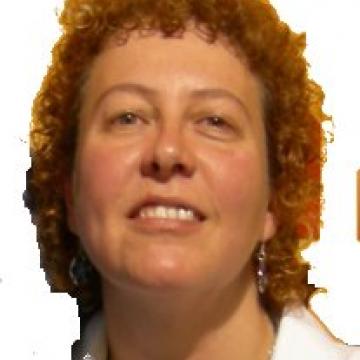
Pilar Dellunde
Adjunct Scientist
Adjunct Scientist

Francesc Esteva
Adjunct Professor Ad Honorem
Adjunct Professor Ad Honorem

Ramon Lopez de Mantaras
Adjunct Professor Ad Honorem
Adjunct Professor Ad Honorem

Enrico Marchioni
Industrial PhD Student
Industrial PhD Student

Pablo Noriega
Científico Ad Honorem
Científico Ad Honorem
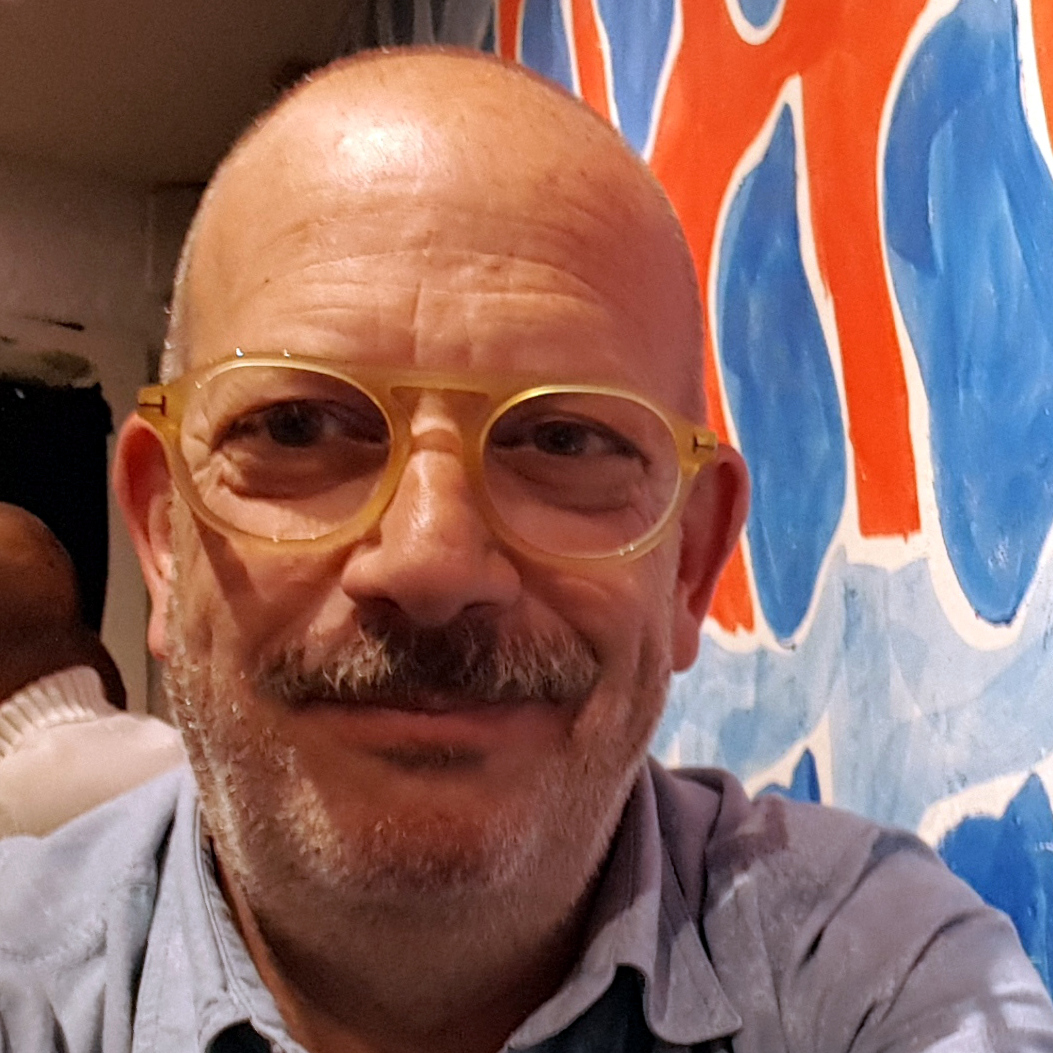
Josep Puyol-Gruart
Tenured Scientist
Tenured Scientist

Sandra Sandri
Visiting Scientist
Visiting Scientist



